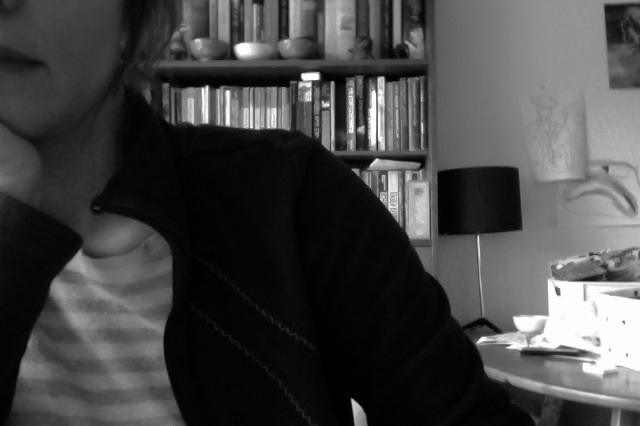
Title: The Ghost Bride
Author: Yangsze Choo
Review by: Captain Clo
Verdict: great premises, poor narration. The interesting bits of Chinese-Malay folklore aren’t enough to sustain a narration in which the protagonist is constantly locked outside of events. 3 stars
This review will have heavy spoilers.
I really wanted to like this book more, and it’s a pity it didn’t deliver for me. It’s a Heterosexual Classic™ in the sense that the protagonist, Li Lan, in the end must choose between two suitors and two lives: a human, ordinary life with Tian Bai, or an adventurous, mysterious life with Er Lang, a supernatural creature (not going to spoil which kind… just know it’s awesome).
The twist, for a Western reader like me, comes from the folklore and setting used: the Peranakan culture, the culture of Chinese people living in the Malaysia area (the book is set in Malacca). It’s certainly an interesting context, with lot of superstitions, ghosts and demons floating in the background – enough to keep the reader entertained for the first half of the book.
The premises are creepy enough: the protagonist is haunted by the ghost of a recently deceased man, whose family wants her to be his ghost bride. To appease this unruly spirit, she’s supposed to marry him even though he’s dead, and so be a widow in his household. Needless to say, Li Lan isn’t enthusiastic about this idea, but the ghost not only torments her, but steals her life force every time he visits her in a dream, making her more and more weak. Contact with this ghost also makes Li Lan aware that his family hides a great deal of secrets and internal strife – an information that is vital to her, since she’s betrothed to the ghost’s cousin, Tian Bai… and since the ghost claims Tian Bai murdered him.
The writing style is good, although sometimes there are too many, not very inspired similes, but the real problem lies with the narration.
I’ll start from the ending, which I think is the biggest problem of the entire novel, because it’s completely underwhelming. The entire story is narrated in first person/past simple; then, when Li Lan must make her decision between Er Lang and Tian Bai, it changes to present tense, and the only thing she says is what she intends to do. We never actually see the scene in which Li Lan tells Er Lang her decision; or when she announces her fiancé or her family her decision to not marry after all. We don’t know anything of Er Lang’s family, even though he warned her it was going to be worse than the drama of Tian Bai’s family. We don’t even know if Er Lang accepts her answer! Or what Tian Bai’s reaction might be!
We don’t know what happens to her father, slipping farther and farther into his opium addiction, once she decides to leave; we don’t even know if she uses the excuse to study abroad, as is her intention, or if she just disappears one day into thin air. Actually, Li Lan doesn’t seem worried about her father’s addiction at all, although she notes a lot of times it seems to be getting worse. She doesn’t worry about how her going away might impact him either, which doesn’t make any sense, since in the previous 250 pages, she worried a lot about how he couldn’t get over her mother’s death and about how he had no friends left because he was a recluse. Then again, Li Lan is pretty self-absorbed, and gives off the impression of worrying about how her father doesn’t have any friends or business associates only because that means she has no chance of finding a husband. Another example would be when she makes up her mind and decides not to marry Tian Bai: suddenly she says that marrying him would mean robbing him of the possibility of being truly loved, because she loves someone else, and he’s still in love with a woman he left behind in Hong Kong. Which: completely out of the blue. Li Lan definitely didn’t care about Tian Bai’s happiness and chances at love before! She was even jealous of this woman!
Overall her character seems pretty ambivalent; the author tries to depict her as unconventional for her times – a literate girl who loves calligraphy more than sewing, who braids her hair in plaits and doesn’t care about fancy clothes – but she’s also very conventional, never questioning the fact that she HAS to marry. Even after she meets more than one woman who was mistreated or abused in her role as wife or concubine, she doesn’t ever think twice about it – because she knows she’s going to be Tian Bai’s first wife. She does show some sympathy for them – even when they’re mean to her – but she never once questions the system that oppresses them, or even the men who did. Before she knows she’s betrothed to Tian Bai it seems like she never thought much about marrying, but only because she takes for granted that someone else – her father – will decide and provide for her; but then she goes to the Land of the Dead and discovers how nice it is to be free to go around as much as she wants, without the necessity of a servant following her and without the restrictions imposed on her gender; but then she comes back, and although she notes the difference and misses the freedom, she never thinks “Hey, maybe this isn’t right?” Overall, I’m sorry to say, but she comes across as pretty stupid. Which doesn’t make sense, because she’s also resourceful, and since she’s an educated woman, her lack of critical thinking skills are quite strange. And the moment when Li Lan decides to abandon convention and marry Er Lang should be a big moment – she’s leaving mortal life behind, after all – and it’s not even described!
The ending is the most egregious example, but there are several moments in which Li Lan is locked outside of her own story unfolding, which makes for a pretty boring storytelling, with other people relying to her what happened in her absence. This is even true for the fate of her antagonists. The suitor who tormented her and his uncle are tried in the Land of the Dead for their misdeeds, and Li Lan isn’t present for it (we don’t even know exactly what happens to them, or who was pulling their strings and why, since it’s only hinted that a ruler of Hell was involved); the girl who stole her body is taken away by a demon and we don’t even know WHY, let alone what happens to her. Another big blank plot point is everything Er Lang does. At least at the end, I expected to see him directly involved in the trial or the investigation, especially with Li Lan as witness, and to see the kings of hell or more of the ox-headed demons… but nothing of the sort happens.
It’s too bad, because I really liked Li Lan’s and Er Lang’s dynamic and I was happy they got together in the end. But the ending is so incomplete, I’m left completely dissatisfied. They don’t even see each other in the last chapter, it’s literally just Li Lan thinking about her decision.
Advertisements Condividi:





